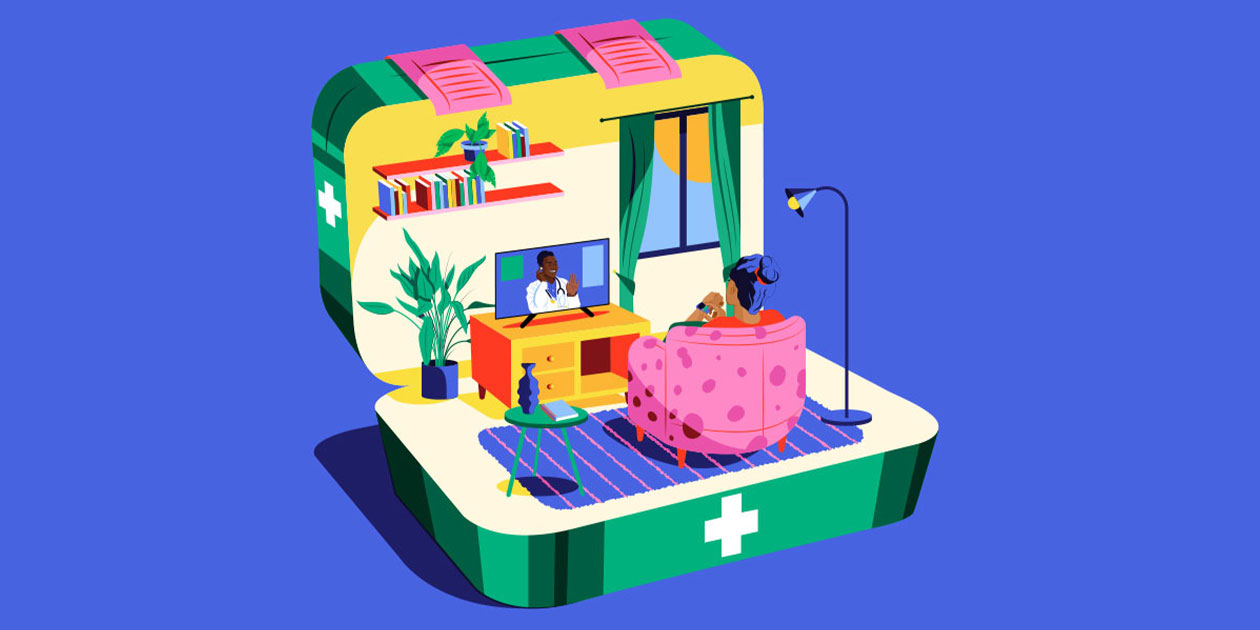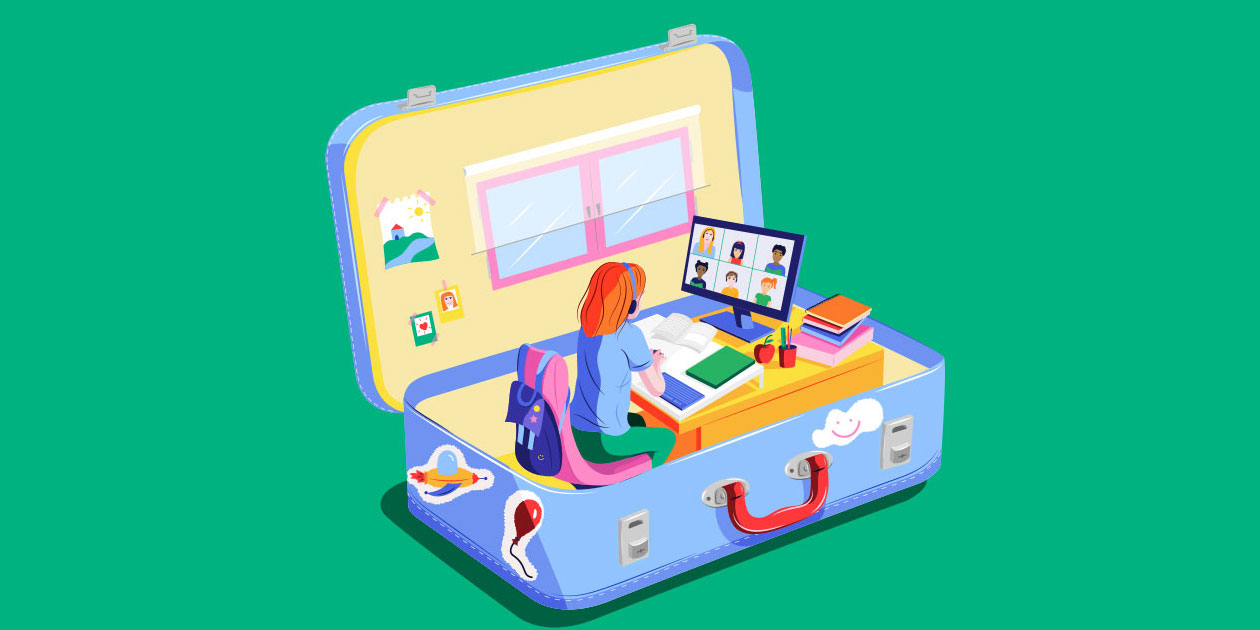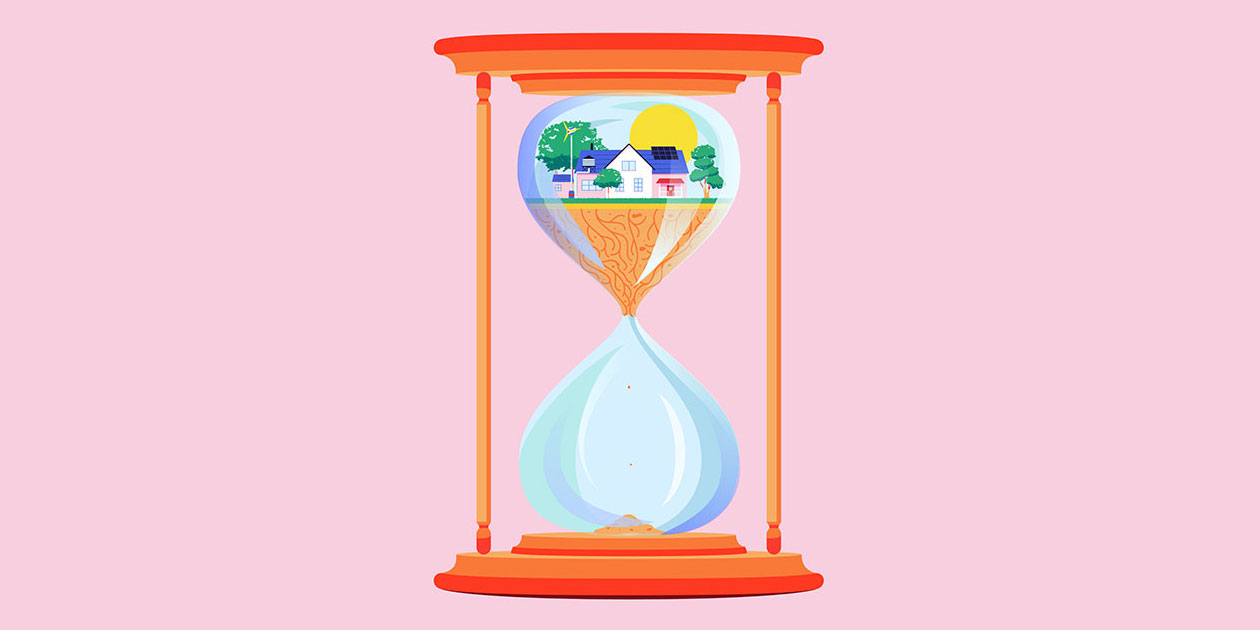What Will Our Post-Pandemic World Look Like?
The world will never be the same.
What we long considered "normal" was brought to a standstill earlier this year when the novel coronavirus swept the globe, taking a toll on lives, health care systems, and the economy. Schools and businesses shut down, friends and families spent months apart, and social inequities were laid bare. Our resilience was put to the test as we adapted to the ever-changing nature of the pandemic on our communities.
The challenges of COVID-19 have both exposed our weaknesses and demanded our ingenuity. Now that we've had more time to understand the virus, here are some ways that University of Iowa faculty and staff believe our collective experience with this crisis could lead to lasting change.

HEALTH CARE
The rise in telemedicine improves the accessibility of health care, including for rural communities, nursing homes, and those who need mental health services.

BUSINESS
Widespread remote work, support for local businesses, and a spotlight on workers' rights may define the post-pandemic era.

EDUCATION
Educators can tailor the classroom experience to meet the needs of individual learners and help bridge the gap for marginalized students.

POLITICS
Will mail-in voting become the norm? Will national social and labor policies change to meet the demands of the times?

ENVIRONMENT
Local, national, and international cooperation are needed to combat global issues such as pandemics and climate change.
How do you imagine COVID-19 will change the world long-term? Email uimagazine@foriowa.org.
